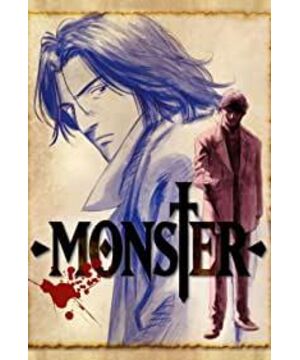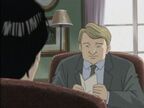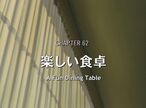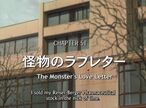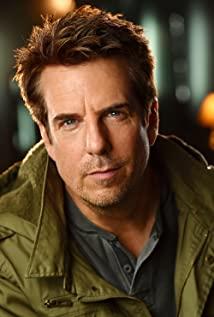monsters When the monster maker, fairy tale and illustrator Franz Bonaparte appeared, he was already an old man, a man with Freudian glasses and a Freudian with hairstyle and beard. The beginning of the whole story originates from Bonaparte's psychological experiment: to create "new people" by revolutionizing the soul of future leaders to guide human progress, a nineteenth-century utopian dream. Franz Bonaparte represents the more refined form of this dream, while its cruder form is already familiar to the world in the two twentieth-century myths of "the vanguard of the XX class" or "the good nation", in The film takes place in the background of the old Soviet Union and the neo-Nazi era.
The choice of the background of the era determines the possibility of the development of the story: the psychological experiment began in the early days of the Cold War, and the main line of the story took place in the era when the Cold War had just ended and the ghosts of neo-Nazis and the former Czechoslovakian secret police had not yet dissipated. If the same story is changed to the Cold War period, there is no other possible happy ending except waiting until dawn in 1991. Time draws the true line between good and evil in the story: the life of today and the ghost of yesterday.
2. Happiness without a Name - Self as a Container
In the fairy tale "Monster without a Name", when the monster who was searching for a name in the world finally got a name, and happened to meet another monster without a name that split off at the beginning, The other side said, "But you can live happily without a name, we are monsters without a name!" This possibility of survival is reflected throughout the script by the reporter/spy Glima. Grima has no name, but Grima is not obsessed with names, which is the biggest difference between him and many people who have lost their memories or been swallowed by dark memories. "Self" has no fixed and irresistible elements for Grima, such people do not care about "who I am". Like Pegasus and Nina, Grima's character has no killing intent, and his battle is completed by Superman Steiner.
3. The Imitation Game - If I Were You
Officer Lenk is a stern, machine-like figure who always seems to be a symbol of his fingers tapping the keyboard in the air. Lenk's best performance is his pursuit of criminals again and again by pretending that he is a criminal. He blended into the Japanese expatriate circle and learned the Japanese way of thinking, practiced Japanese bowing to himself in the mirror, and changed his character in every detail of his life. Just because the object of his imitation "is a person with indifferent family relationships", Lenk gave up the opportunity to see his daughter and grandson. Holding the sniper rifle of the same model purchased by Tianma, he said to himself: "I am Tianma...I am Japanese...I am Chaos..." Lenke's longest imitation was the imitation of Tianma: since he concluded that Tianma was a A schizophrenic patient, it was Tianma who imagined his second personality named "John", so he simply followed John's search - Lenke believed that John did not exist, but knew that this name was more important to Tianma. Everything is more real. It can be said that Lenk is the only heroic character in the whole play, and his body is burning with the selflessness and fearlessness of the old times: if Lenk was born in the era of Frederick II and Kant, his fate should be much better than that of a police officer. .
4.
The problem of nothingness is most vividly reflected in Ava's story. Ava only loves Pegasus, and it could even be said that the only love story in the whole story is precisely about Ava who destroys love. But she never took herself seriously; nothingness made her jealous of everyone and set fire to her ancestral fortune, Ava's reckless behavior. In the end, she knew that her task was to identify John, and the reward for the task was extremely high. She would have endless money to buy all the clothes she wanted, and return to "the high society that originally belonged to her". However, at this time, she was already tired, and as soon as she saw that there was no John in the dance, she immediately exited the stage. In a low-level tavern, Ava speaks the truth: she knows she's going to be killed when she's done. She understands that death is near, and in the last short madness of her life, she bluntly said, "Since you are going to be killed horizontally and vertically, it is better to dress beautifully and die beautifully than to be killed by Robert in that shabby little hotel. Bright", but then said, "But death is not the same." Throughout the play, Ava spends time in nothingness and madness, and finally she "runs away with Martin". Running away together is like "Leaving this indifferent place" at the end of New Dragon Inn, but where is the transcendence of nothingness?
5. An ode to everyday life
Nietzsche once said that the real title of the book "The Birth of Tragedy" was "How the Greeks Overcome Nihilism", but the somber Monster never had a moment of life-affirming glory, if ever, it was also in their personalities. The other side: Just like the fairy tale "God of Peace" in the story, the whole story was written by the God of Peace: no one can call out the monster's name, the monster in the mirror is always strange, Superman Steiner is always silent, War has never been divine, and since the dividing line between good and evil is the life of today and the specter of yesterday, it is certain that the kind of daily life that Germans lived after 1991 undoubtedly represented the author's values and provided an overcoming of nothingness: Ava The overturned sandwich at a grassy picnic in the memories, seems to find solace in the sandwich handed to her by a child; she eventually survives and takes a regular job. Even Franz Bonaparte was given a new lease of life after seclusion in the small town of Luenheim (German for "quiet home"). These crazy people and nihilistic people only know the beauty and value of daily life after they have created and experienced many nightmares. Charles Taylor believes that a major change in Western modern values is the gradual increase in the affirmation of daily life, and this The end of cultural change is people like Tenma and Nina.
6. Empathy
In a world that celebrates the value of everyday life, the bond between people other than political relations is empathy, which fundamentally changes the psychological state of several characters. A killer who puts five teaspoons of sugar in every coffee he sees in the sight put five tablespoons of sugar into the coffee, he gives up the assassination and washes his hands with gold. The police who killed Nina's adoptive parents only realized the fear of being killed and lost their relatives after they had a family, so they felt guilty for Nina and decided to try their best to make up for their faults. Grema never knew how to feel about happiness and misfortune all his life. Before he finally died, he empathized and understood the pain of his dead son, leaving behind tears. And the whole play is also caused by the empathy between Anna and John: if John hadn't completely empathized with Anna's memory, he wouldn't have turned into a monster. In this sense, the author is an extreme empiricist, who believes that human nature is a whiteboard that can be smeared at will -- "human beings can become anything they want" -- and only on a whiteboard can it be like painting a fairy tale picture book That way, a monster without a name is created.
7. Whiteboard on monsters
Someone with stronger faith in some "innate tendencies/laws" in human nature might be more focused on describing John's pain, John's desire, John's revenge, John's punishment, John's "justice" , rather than John's suicidal indifference. If there's one downside to the animation, it's that John's mind cannot be sympathetically understood by us normal people: a truly good depiction of madness must elicit sympathy from the audience and question the boundaries between madness and sanity. However, John's abilities in this animation are almost supernatural, and his desires are almost incomprehensible. Great art necessarily means breaking boundaries, an anti-common sense movement that pushes the unreflected boundaries of everyday life and then affirms life in something more fundamental and unbreakable. However, in this play, the gap between monsters and normal people is always clear and insurmountable, and the author has never ventured into the spiritual world, which makes this almost perfect animation out of perfect art.
Since everyone in the 511 Nursery Home gradually loses memories of himself, John mistook the memories his sister Anna told him as his own. But why does he have the pathological desire for murder? The author has no access to John's inner world, unable to deduce from the "deranged memory that he thought he walked into the red rose house" that he wanted to "completely commit suicide", that is, "to repeat this tragedy in the 511 Children's Home and the town". This makes John, possibly the most brilliant character in the whole film, the thinnest. If we use music as an analogy, then John's music is the complete silence of Cage's 4'33''; and his childhood memories are traumatic like the dirges of the victims of Hiroshima. The author subscribes to the values that Pegasus and Nina stand for - an ode to everyday life - but is incapable of going beyond that to describe its opposite: an epic or tragic reconciliation between history and the past that transcends history through indefatigable struggles of mankind - as for In the end, it can become an epic hero and a tragic hero. The difference between the two is that the epic hero will become a more mature person at the end of the play, and the tragic hero will die in his "tragic flaw". It was the only possible way out for John, and it was the way he never set foot.
View more about Monster reviews


